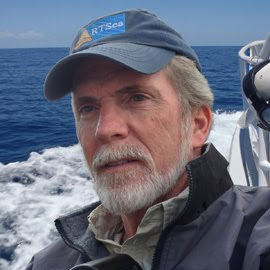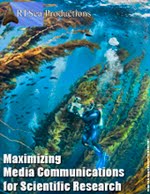 Today, we are experiencing a significant environmental and ecological movement, and well we should, as more and more evidence of our poor stewardship of earth's natural resources continues to mount. But for many movements there is a maturation process that is occurring where we are moving beyond building an emotional groundswell of awareness to realizing concrete, quantitative results. And that means developing successful strategies that can ward off intransigent corporate interests and get decision-makers to do what we elect them to do - to look out for the best interests of their constituencies.
Today, we are experiencing a significant environmental and ecological movement, and well we should, as more and more evidence of our poor stewardship of earth's natural resources continues to mount. But for many movements there is a maturation process that is occurring where we are moving beyond building an emotional groundswell of awareness to realizing concrete, quantitative results. And that means developing successful strategies that can ward off intransigent corporate interests and get decision-makers to do what we elect them to do - to look out for the best interests of their constituencies.While we look to others for tangible results, there are still personal decisions that we can make which can have an impact. Here are a couple that I came across.
Phosphate-Free Detergent
Ever wonder how your dishwasher gets your glasses sparkling free of spots? Phosphorus - one of those better-living-through-chemicals that binds to food particles and minerals, allowing dishes to rinse off free of residue. As much as a third of the phosphorus that makes its way as treated wastewater - which ends up in rivers and other waterways - comes from dishwasher detergent. The rest comes from fertilizers and our own body waste.
The problem with phosphorus is what it does in open water. It stimulates the growth of algae and this, in turn, impacts other aquatic life by either forcing them out in a territorial tug-of-war or by depleting the oxygen levels in the water - one component to the oxygen-free "dead zones" you may have read about.
Phosphorus detergents are slowly being phased out in many countries and U.S. states. But it has been a slow step-by-step process as chemical companies push hard to resist. By choosing to purchase phosphate-free detergent and living with a spot or two on your wine glasses, you are not only doing your part to protect the environment but you are telling the chemical companies, through the marketplace, how they need to adapt their business models to changing realities.
Plastic Bag Ban in Los Angeles County
In the United States, the groundswell toward banning the single-use plastic bag is in its infancy but slowly making progress. The Los Angeles Board of Supervisors has initiated a plastic bag ban in unincorporated areas under its control which should produce an annual reduction of 600 million bags.
 Several other cities have tried for bans and seen them defeated due to the concerted efforts of plastic bag lobbyists, so plastic bag ban supporters learned from those mistakes and focused less on the big picture issues of greenhouse gases and ocean pollution/biodegradability associated with plastic bags. Instead, they built convincing arguments regarding local pollution/litter, contaminant-free reusable bags, the failure of plastic bag recycling programs, and the right of stores to charge customers a modest 10-cents for recycled paper bags.
Several other cities have tried for bans and seen them defeated due to the concerted efforts of plastic bag lobbyists, so plastic bag ban supporters learned from those mistakes and focused less on the big picture issues of greenhouse gases and ocean pollution/biodegradability associated with plastic bags. Instead, they built convincing arguments regarding local pollution/litter, contaminant-free reusable bags, the failure of plastic bag recycling programs, and the right of stores to charge customers a modest 10-cents for recycled paper bags.As these represent the efforts of environmental organizations and politicians, what should be our personal contribution? Support. At the very least, ask for paper bags instead of plastic when you go to the market. Use reusable cloth bags when you can (make sure they can be easily washed or disinfected). Keep one in your car for those unplanned runs to the store which often result in one more small plastic bag entering the environment.
But aren't single-use plastic bags convenient? Sure they are. However, it is a convenience that we are now seeing takes a heavy toll on the health and aesthetic appearance of the environment - from floating garbage patches at sea to roadside eyesores.
Favor Buying Farmed Fish
While international organizations work to limit the catches of dwindling species like tuna, swordfish, and many, many others, we can lend our support by buying farmed fish whenever we can. Commercial fishing, like many other industries, is slow, if not outright resistant, to the necessary transition from fishing to farming. The idea that a particular species will literally disappear does not resonate within the industry as well as changes in market demand does.
The logic behind aquafarming is simple, really. Imagine where we would be today if there was no cattle ranching or chicken farming - all beef and poultry came from what was caught right out of the forests and fields. What do you think those wilderness areas would look like today? Raising cattle and poultry was inevitable to meet the demand of a growing population. It wasn't without its problems or issues but it was better than a land devoid of animal life.
It's the same situation with seafood, with one crucial difference. That being, we can see what is happening on land but we don't see what is happening beneath the waves. And so, one after another, commercial aquatic species are facing literal extinction. Aquafarming is not without its problems. But if the market demand is there, the solutions will follow if for no other reason but to make it sustainably profitable. I hope to touch on some of those in future posts.
We turn to the policy- and decision-makers to take the steps necessary to secure a future for the planet and the generations that will inhabit it. But we must be prepared to show them that we can change our personal behaviors to fit a new appreciation of our limited resources.
Read about phosphorus in TIME.
Read about L.A. County's plastic bag ban at Heal The Bay

















No comments:
Post a Comment